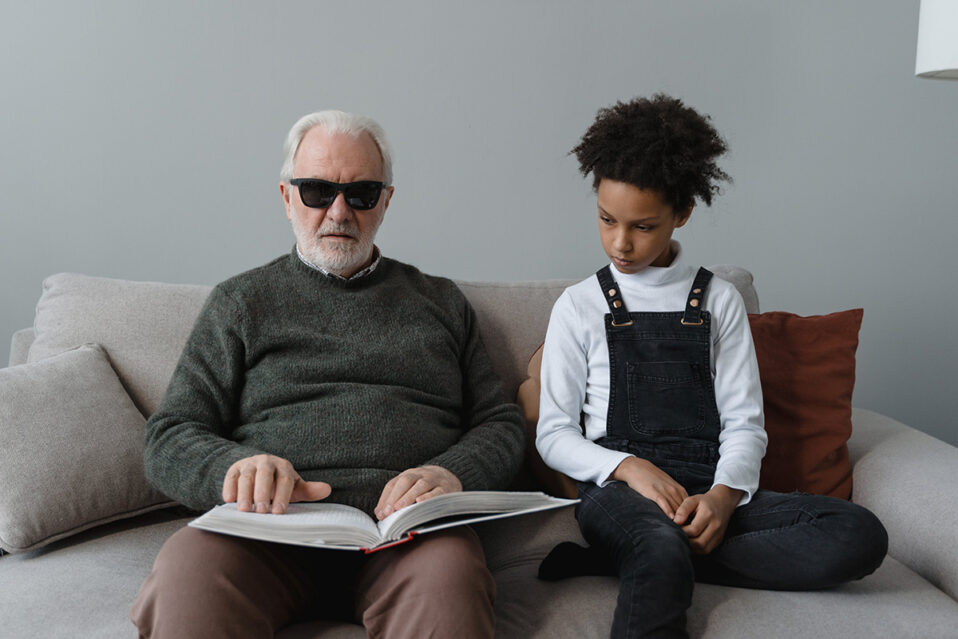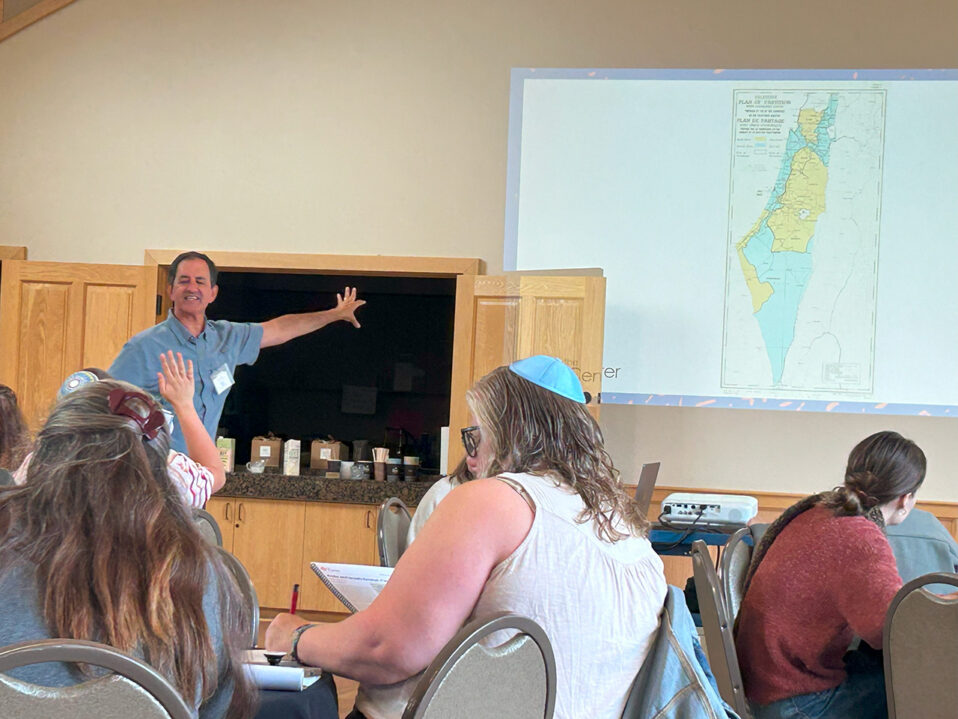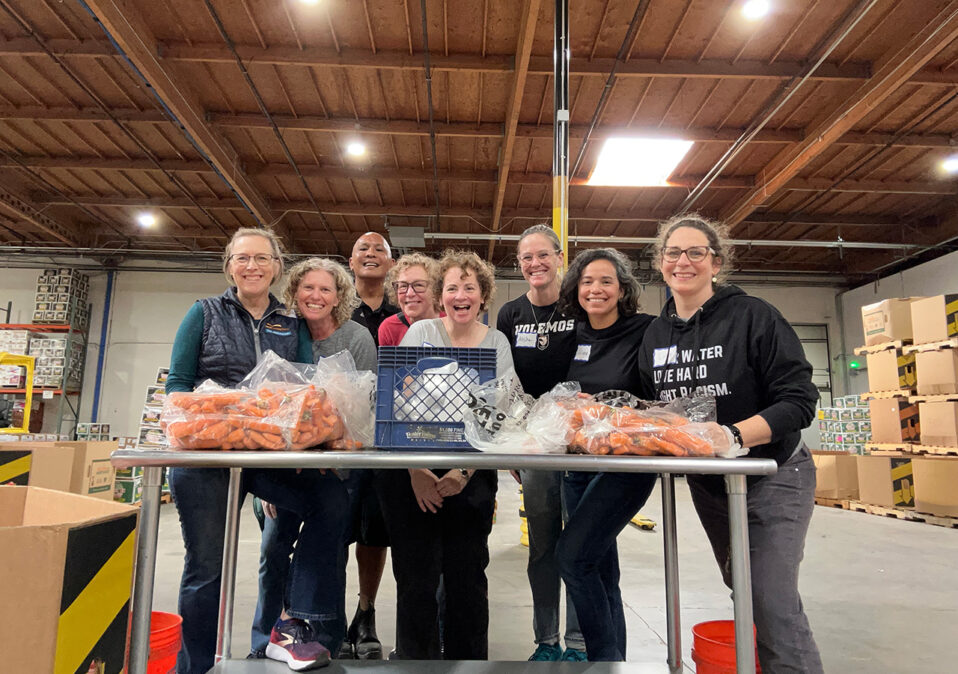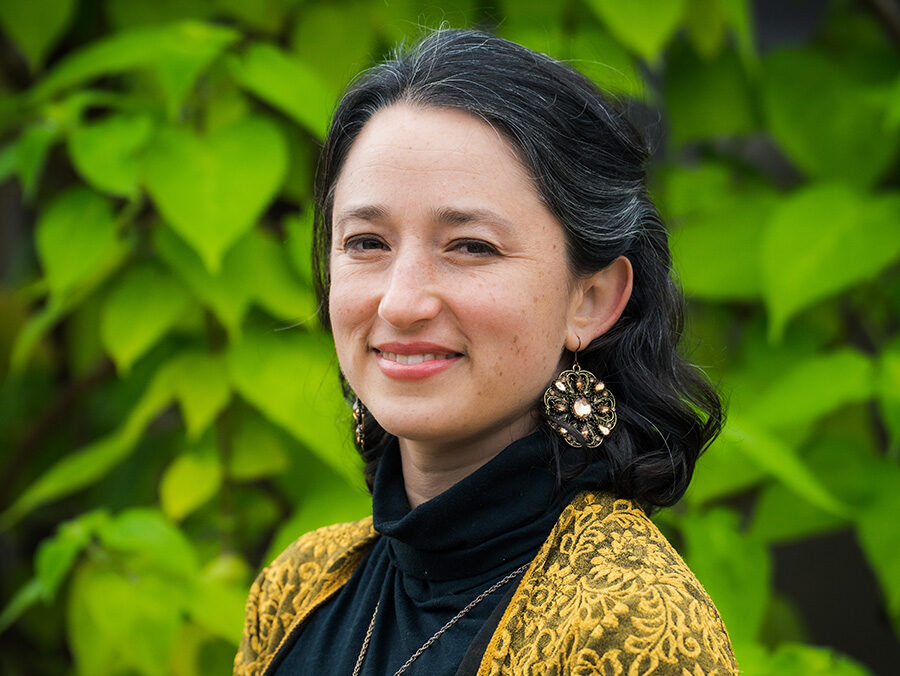By Liora Brosbe, Jewish LearningWorks’ Senior Educator.
How can we all learn to see our differences as assets rather than obstacles? Disability inclusion and racial equity and justice are cornerstones to our work at Jewish LearningWorks. This month we have the chance to embody these values as we honor Jewish Disability Awareness, Acceptance, and Inclusion Month (JDAIM) and Black History Month.
Jews of Color encompass all forms of racial diversity and do not exclusively identify as Black. And yet, as we enter the month of February, we can take the opportunity to rededicate ourselves to create vibrant spaces for people that have been marginalized from Jewish communal life, such as Jews who are disabled and Black Jews. Honoring and learning about the experiences of people who are disabled as well as Black history is not something that should just happen in February. However, this month provides us with the invitation to both demonstrate a commitment to diversity, equity, inclusion, and belonging, and evaluate if our Jewish spaces are welcoming to people who have disabilities and to Jews of Color.
Too often, Jews of Color are made to feel that they have to choose one identity in order to experience belonging in Jewish community. I invite us to publicly acknowledge that Jews of Color come to Jewish spaces with a plurality of cultures, and we must affirm all of who they are, rather than reduce them to just one aspect of their identity. I also urge us to think expansively about disabilities to embrace those that have visible as well as invisible disabilities including neurodifferences.
In a recent study session on the weekly Torah portion, Va’era, Rabba Yaffa Epstein emphasized the differences between Moses and Aaron as leaders. Both bring different perspectives, strengths, lived experiences, and leadership qualities to the daunting task of representing G!d in order to demand that Pharaoh free the enslaved Israelites. Moses is described in the text as someone with a physical disability; there is an abundance of writings (such as this piece) that explore how it impacts his leadership. Ultimately Moses doesn’t feel confident in his ability to communicate to Pharaoh and Aaron is tasked to support him. Aaron also brings a crucial perspective to the relationship. Aaron was socialized as an enslaved person, meaning that he personally yearned for freedom for his community and could represent this experience as he worked with his brother for liberation. These biblical leaders take their differences and achieve the ultimate goal, to demonstrate the power of G!d and lead the Israelites to freedom.
Moses and Aaron and the groups of people that we honor in February remind us that we all have a role to play, as well as unique talents, skills, and perspectives to bring to the work of a more equitable and just society.
Keep Learning & Growing
Join us in two upcoming learning opportunities to strengthen Diversity, Equity, Inclusion, and Belonging skills for Jewish educators:
- Intersections: Latin Jewish and Multiethnic Family Engagement. Workshop taught by Bay Area scholar and Jewish professional, Ariela Ronay-Jinich who is the Founder and Executive Director of Olamim, March 26 and 28, 2024, 10am-11:30am.
- In January we started the 2024 monthly sessions of Preschool Professionals Consultation Hour series, all virtual, starting at 6:30 pm. Each meeting is stand alone, so come to some or all, alone or with other members of your team. We are here to support you!






